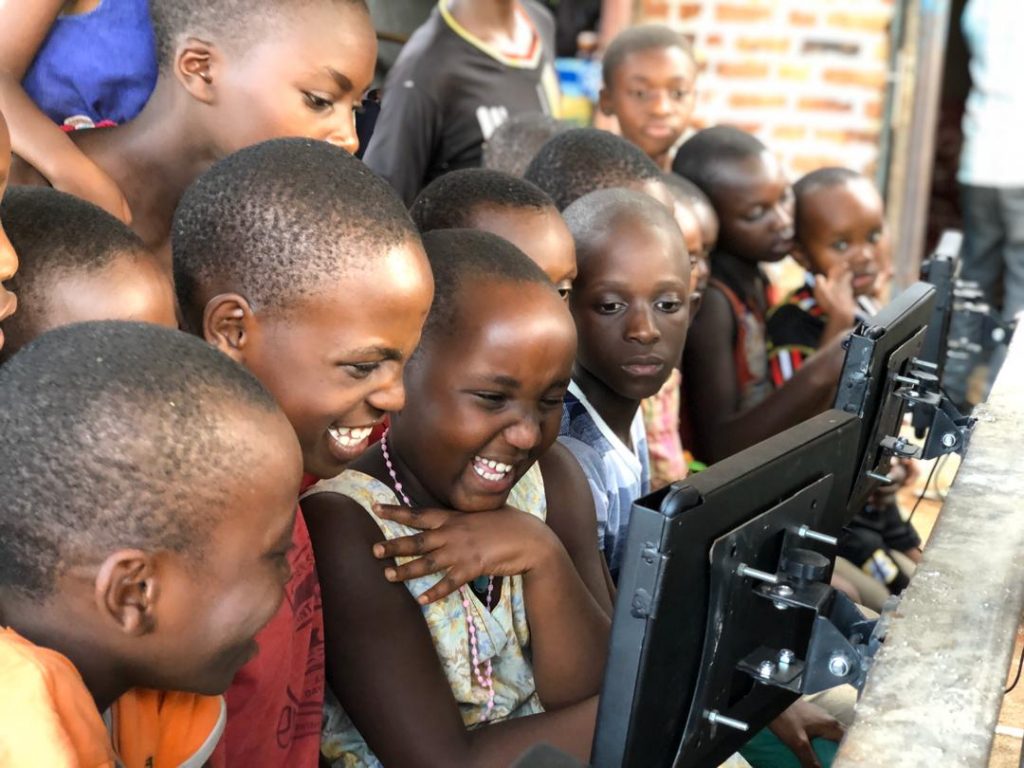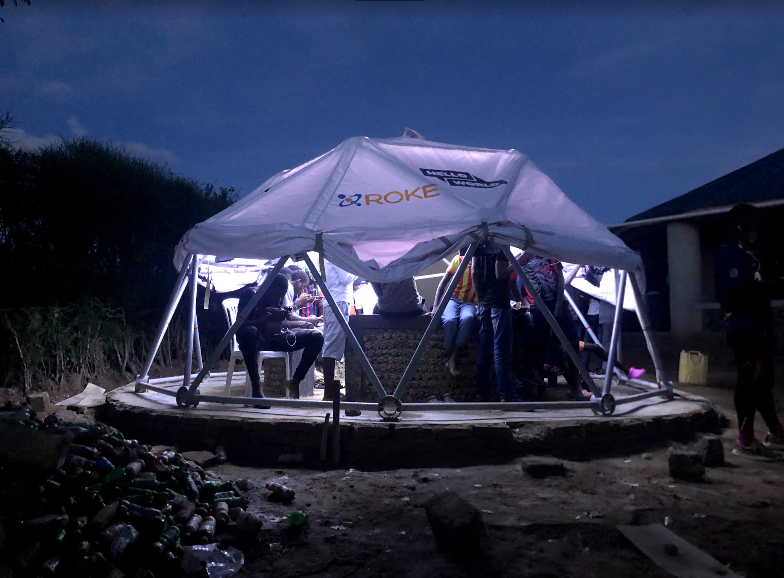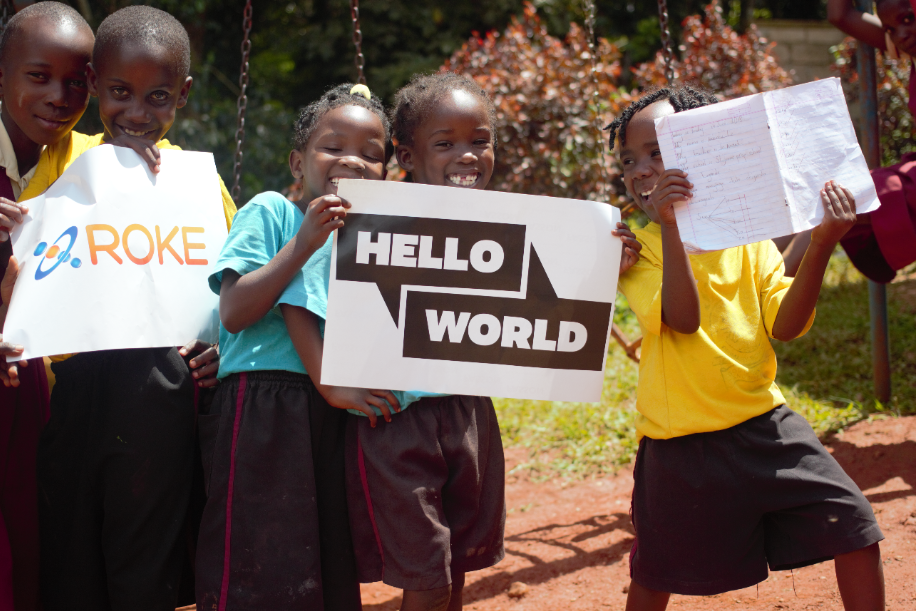
With schools closed in a bid to slow the spread of coronavirus disease, learners in rural areas have been able to continue learning through a network of internet hubs provided by Roke Telkom, a home-grown Ugandan public service provider for voice and data communications services, and Hello World, a UK-based charity.
In 2019, Roke Telkom partnered with Hello World to help remote and marginalized upcountry communities that are underserved by the internet, to access digital education. They built 14 ‘Hello Hubs’ around the country, 8 of these in Nakivale refugee settlement, 2 in Kampala and 4 others in Fort portal.
The solar-powered, outdoor, internet-connected computer kiosks are designed to provide communities with access to educational software, games, video and communication platforms. They are setup to give people the opportunity to connect with the world, have a voice in their community, educate themselves, and begin their journey towards economic empowerment.

By design, every Hello Hub is a Wi-Fi hotspot and is free, courtesy of Roke Telkom.
Michael Mukasa, the Chief Commercial Officer at Roke Telkom, says the disruptions occasioned by the Covid-19 pandemic have pushed children in rural and refugee communities further to the edge with many likely to drop out permanently from the education system.
“COVID-19 has had a grim impact on children. However, our partnership with Hello World has in many ways been a silver lining because we have been able to extend access to at least 14,000 kids in underserved and unprivileged rural communities in a time when physical attendance in schools is a risk,” Mukasa said in interview.
Some 7.5 million learners (51 per cent) have not had any form of learning during the 14-month period that schools in Uganda have been closed, according to a recent report by the Forum for African Women Educationalists Uganda (FAWE).
The report adds that learners from rural areas, were most affected with 52.2 per cent of them failing to access the materials compared to those in urban areas with 49.8 per cent.
As part of the Roke Plus offering, Meeting Apps and Office Suit Apps are zero rated, to eliminate barriers that could make it difficult for learners and teachers to interact virtually during such times which require social distancing. This zero-rate also enables business owners to reduce on the cost of data as they can coordinate, communicate with their teams at no charge.

Mukasa adds; “At Roke Telkom, innovation has always been at the center of what we do. At a time when learning was shifting from the physical classroom to virtual spaces, we rolled out these internet hubs to help children study at no cost. And we are impressed with the impact it has had – especially protecting them from risks that could have had long term effects on their physical, emotional and cognitive outcomes”.
During the lockdown and pandemic, over 15 million learners were affected by school closures exposing them to several risks including abuse, child labour, limited access to basic needs, sexual abuse, physical violence, pregnancy, theft among others.
For the majority of Ugandans, the internet remains out of reach, particularly in rural areas where 75.5% of Ugandans live. The country’s internet penetration rate stood at 52 per cent at the end of 2020.
According to UCC’s latest (December 2020) Communications market performance report, the number of active internet subscriptions stood at 21.4 million, translating into an internet access reach of more than 1 active connection for every 2 Ugandans.
